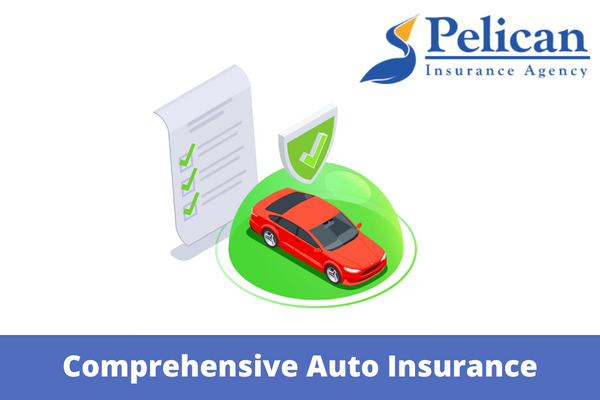What Is Comprehensive In Auto Insurance

Comprehensive insurance is a form of car insurance that covers damage to your vehicle caused by factors other than a collision. It will cover your vehicle if, among other things, it is destroyed by a tornado, dented by a deer, vandalized, damaged by a break-in, or crushed by a collapsing garage. Keep on reading to learn more about comprehensive car insurance and how it could be the right choice for you.
What Is Covered By Comprehensive Insurance?
Every accident is unique, and whether or not comprehensive insurance covers your accident is decided by various factors. The following are some examples of harm that may be covered by comprehensive insurance:
- Theft
- Fire
- Vandalism
- Contact with animals
- Falling or flying objects
- Hail
- Windshield damage
- Windstorms
- Earthquakes
Comprehensive Insurance vs. Collision Coverage
They could be viewed as two halves of a whole. Collision insurance protects you if your automobile is hit by another vehicle, a fixed object, or flips over. This insurance protects you in the event of an accident.
Comprehensive insurance, on the other hand, includes almost everything else. It protects you if your vehicle is damaged by anything from theft to natural catastrophes. You could say that collision insurance is for when you strike something else, and comprehensive insurance is for when something else hits you (assuming it isn’t another car).
Comprehensive Insurance vs. Full Coverage
Yes. Some people mistakenly use these words interchangeably, but there is an essential distinction: most insurance providers do not provide “full coverage.” To put it another way, no single car insurance policy covers everything.
As previously stated, comprehensive insurance is optional coverage that can be added to your state-mandated liability insurance to provide additional security for accidents that are not the result of a vehicle collision. Instead of having a single super policy, you can combine various types of coverage.
Does The Law Mandate Comprehensive Insurance?
Comprehensive insurance is not legally needed. However, lenders will frequently require it if your vehicle is leased or not completely paid off.1 Damage from sources that are frequently beyond your control is also covered by comprehensive insurance. So, unless you’ve mastered the art of commanding the weather, every nearby tree branch, and every would-be thief, complete coverage is a good idea.
How Does Comprehensive Insurance Work?
Comprehensive coverage, like other types of vehicle insurance, pays for a portion of your loss if your car is damaged. The car owner must also pay a portion of the cost, known as the deductible. The insurance payment can be used to pay for repairs or to purchase a replacement vehicle.
Conclusion
Keep in mind that skipping comprehensive coverage, in this case, may result in a hefty repair cost if your vehicle is damaged. So weigh the costs of any potential repairs against the premiums or deductibles you may have to spend to keep comprehensive coverage. Call Pelican Insurance Agency today to learn more about how we can help you get the right auto policy for your needs.